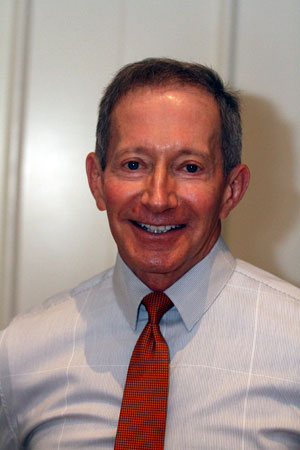As it is a long weekend, and you may have a bit more time to go through this weeks Food for Thought I have broken it into two parts. The first part focuses on the conference I attended recently and the second part on views of our world that will provoke thinking for us in our role as teachers preparing students for an uncertain future.
Part 1
At the EduLead Conference Deb Masters from Visible Learning Plus presented the latest research from Hattie that is summarized in this short article by Shaun Killian. As you will know, Hattie's work is a mega data study of millions of students in hundreds of thousands of pier reviewed research papers from all over the world. In his work he identifies over 400 different teaching strategies and creates an effect scale to measure their impact on learning. There has been some criticism of Hattie's work since it first emerged in the early years of this century, however, one has to be careful not to dismiss his message because of technicalities that in reality have no impact on his effect scale results. He freely admits that cultures may play a bigger part than recognized and that criticism of the Common Language Effect size (CLE) is correct but is not the major statistical driver for his effect size calculations. What is important throughout Hattie's work is simply his message and that is to know and be prepared to measure our impact as teachers on learning. As Hattie says:
The major argument in this book underlying powerful impacts in our schools relates to how we think! It is a set of mind frames that underpin our every action and decision in a school; it is a belief that we are evaluators, change agents, adaptive learning experts, seekers of feedback about our impact, engaged in dialogue and challenge, and developers of trust with all, and that we see opportunity in error, and are keen to spread the message about the power, fun, and impact that we have on learning — Visible Learning for Teachers (2012), p.159
Deb Masters expanded upon what were originally the 8 Mind Frames that made a difference to learning and showed that from recent Visible Learning Research teachers building the following responsibilities / mind frames have the largest effect:
- I am an evaluator
- I am a change agent
- I talk about learning, not about taeching
- Assessment is feedback to me
- In engage in dialogue, not monologue
- I enjoy challenge / high stakes
- I develop positive relationships so it is safe to make mistakes
- I inform all about the language of learning
- I see learning as hard work
- I collaborate
Deb said that 95% of what schools do has a positive impact on student learning, just some startegies have more impact than others. From the recent research the average impact is .53. She suggested that just 4 minutes of teachers talking about practice a month will make a difference to student learning. Hopefully at ISHCMC we have more pedagogical talk than this and can hope to be making a bigger impact on our students learning
Here are some of effect factors that we often associated with improved learning but in this research are described as being nothing more than 'the politics of distraction.'
- Class size .21 ( reducing class sizes affects teacher talk and working conditions more than impacting student learning)
- Ability groupings .12
- Homework High school .59
- Homework Primary school .11
- Inquiry teaching .31 ( much higher impact if coming on top of surface based level, see below)
A few of the factors that have the highest impact on learning are:
- Teacher Efficacy 1.57
- Formative Evaluation for teachers .90
- Classroom discussion .82
- Teacher clarity .75
- Feedback .73
- Creativity Programs .65
- Prior Achievement.63
If you would like to see the entire list then please follow this link.
In his latest work, 2016, Hattie has produced a conceptual model that takes the 400 different learning strategies and groups them together in phases and stages of the learning process. I have taken the liberty of taking a few chunks of his latest article on Learning Strategies, to give you insight into where Hattie's researching is developing today.
"The model of learning proposes that various learning strategies are powerful at certain stages in the learning cycle. The model describes three inputs and outcomes (skill, will and thrill), success criteria, three phases of learning (surface, deep and transfer) and an acquiring and consolidation phase within each of the surface and deep phases. His model looks like this:

Although not a hard and fast set of demarcations, surface learning refers more to the content and underlying skills; deep learning to the relationships between, and extensions of, ideas; and transfer to the proficiency to apply learning to new problems and situations.
The ‘skill’ is the student’s prior or subsequent achievement, the ‘will’ relates to the student’s various dispositions towards learning, and the ‘thrill’ refers to the motivations held by the student. In the model, these inputs are also the major outcomes of learning. That is, developing outcomes in achievement (skill) is as valuable as enhancing the dispositions towards learning (will) and as valuable as inviting students to reinvest more into their mastery of learning (thrill or motivations).
There are four main messages to be taken from the model:
- First, if the success criteria is the retention of accurate detail (surface learning) then lower-level learning strategies will be more effective than higher-level strategies. However, if the intention is to help students understand context (deeper learning) with a view to applying it in a new context (transfer), then higher level strategies are also needed. An explicit assumption is that higher level thinking requires a sufficient corpus of lower level surface knowledge to be effective—one cannot move straight to higher level thinking (e.g., problem solving and creative thought) without sufficient level of content knowledge.
- Second, the model proposes that when students are made aware of the nature of success for the task, they are more likely to be more involved in investing in the strategies to attain this target.
- Third, transfer is a major outcome of learning and is more likely to occur if students are taught how to detect similarities and differences between one situation and a new situation before they try to transfer their learning to the new situation. Hence, not one strategy may necessarily be best for all purposes.
- Fourth, the model also suggests that students can be advantaged when strategy training is taught with an understanding of the conditions under which the strategy best works—when and under what circumstance it is most appropriate."
There is definitely some interesting learning for this mega data study that we can and should be using to inform our teaching at ISHCMC.
Part 2
The second part of this weeks Food for Thought is to with minimal commentary draw your attention to three videos that will encourage our thinking about education and our view of who we are.
Firstly, a short film, Alike, which we shared on the ISHCMC Facebook last week and encourages questions about school and the role of creativity, difference, well-being and individuality.
Secondly, the Pope speaks on TED about our relationships with each other and how important that is in our world today.
Thirdly, a short music video that reinforces the Pope's message and illustrates how we can be the one who takes the first step and how that can cascade to others. There is nothing stopping each and everyone of us leading the way to a kinder and more tender world.
Have a good long weekend,
Yours as always,
Adrian

